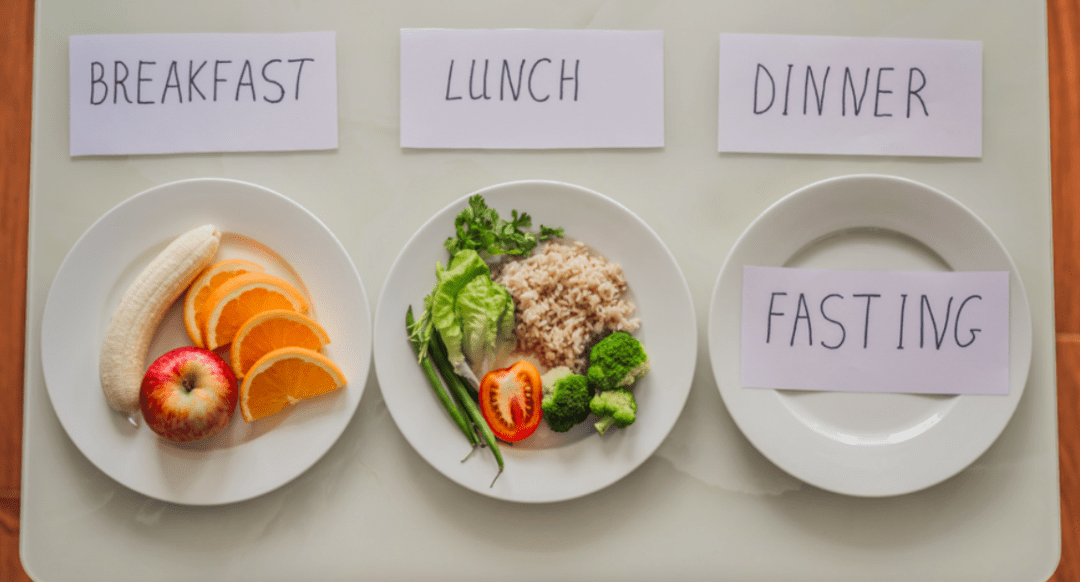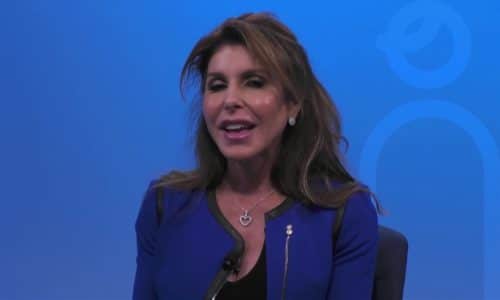What are the Pros & Cons of Intermittent Fasting? |

Intermittent fasting is another popular diet that many people use for weight loss. Contrary to popular belief, intermittent fasting is not about restricting what you eat, but about restricting when you can eat. When you are not eating your body goes into a metabolically “fasting” state, while when you are in a fed state your metabolism works differently. Intermittent fasting is about controlling when you switch between those two states.
Lucette Talamas, Registered Dietitian, explains that there are several different ways to apply intermittent fasting to your routine. The most popular way it is done is called a 16/8 method in which you have 16 hours of fasting and an eight-hour window of being able to eat. Usually, there is no restriction on what is eaten in those eight hours. A simpler form of fasting, called traditional fasting, utilizes the natural, fasting state of sleep. If you eat an early dinner and sleep a healthy amount, you should be able to easily fast for about twelve hours at night. That alone can provide valuable health benefits for regulating weight.
Talamas warns that intermittent fasting is not something that she would recommend for everyone to try blindly. There are certain populations that should exercise caution when approaching intermittent fasting as an option for dieting. She says that people who take a lot of medication that require meals to be planned around them should probably stay away from intermittent fasting. A lot of fasting diets include skipping breakfast, which could be not ideal for people who must take their medication in the morning. Talamas adds that people with diabetes, especially those who are taking insulin, should not consider fasting as an option for them. Pregnant women and breastfeeding women should also not go long periods of time without eating.
Fasting can also be dangerous for those with eating disorders or those at risk for an eating disorder because it puts such intense restrictions on eating. “We’re trying to improve our relationship with food, we’re actually trying to tune into our bodies, and feed our bodies when they’re hungry,” Talamas says, “Something like intermittent fasting can add more rigid rules to that.” If these more rigid rules make it so you are sacrificing your nutrition, then Talamas suggests that fasting is not for you.
The interviewer asks Talamas, what are some first steps people can take if they want to start one of these diets? Talamas replies that the first, and most important thing someone should do before starting a diet is understand what a diet is. “Technically a diet is what we eat every day. It’s a simple definition. We all have a diet, but the way we usually use the word diet is the restrictive form of dieting,” she explains. She does not recommend anyone to do a diet that has a predetermined start date and an end date because it feeds into that restrictive dieting mentality. Losing and gaining weight rapidly is stressful for your body, not only physically, but psychologically as well. Being obsessed with food and weight loss can become psychologically taxing and will not make you healthier.
Diets that aim for a sustainable lifestyle change are more what Talamas is looking for. A healthy dietary pattern can fluctuate based on where you are in your life or what you like, it does not have to be a static plan. She explains that “A healthy dietary pattern is always going to have the major food groups present and it can fluctuate, but we want to make sure the good food is there on most days and that’s achievable, realistic.” It has to be individualized and doable within the context of your lifestyle. There is no one-size-fits-all approach to a healthy diet. “I’d encourage more small changes that work for your life that are long term and benefit your health,” she finishes.
A healthy diet can be achievable for anyone when you understand what can work for you as an individual. It can get confusing when there is so much conflicting information out there, but the core of healthy eating will always be about maintaining balance. Talamas defines a balanced plate as having a controlled amount of carbohydrates that include whole grains, lean proteins, whether they be plant or animal, and an abundance of vegetables and fruit. It is possible to have an overall healthy eating pattern that can fuel your body for the day and help prevent and manage chronic diseases.
Watch the full interview with Lucette Talamas here: https://youtu.be/rv-Yyh5yWaY








